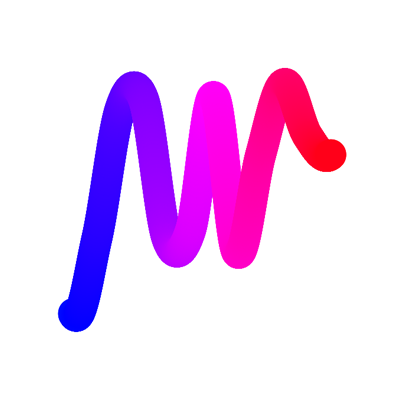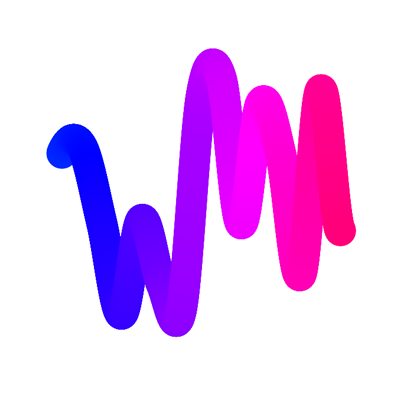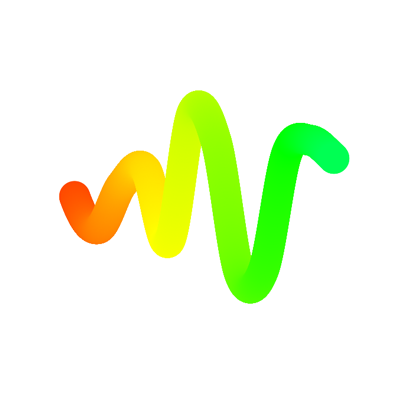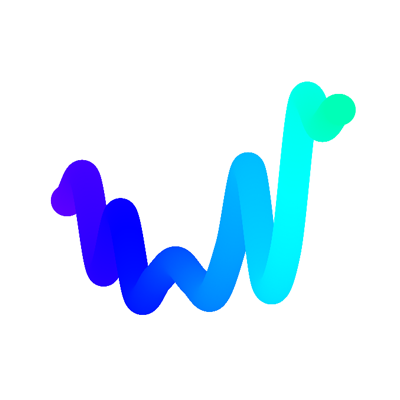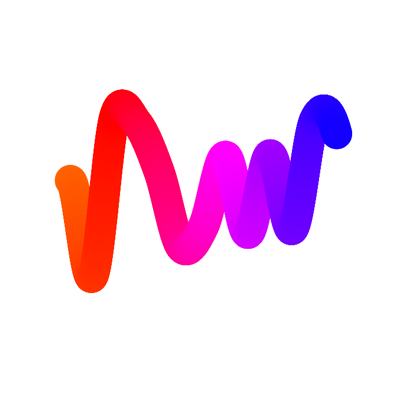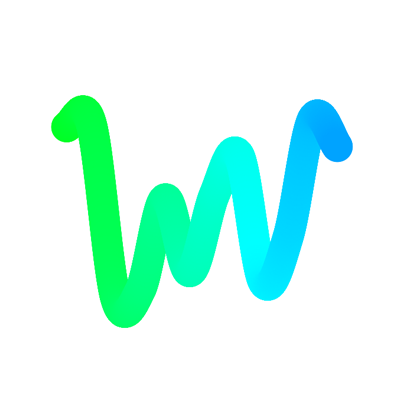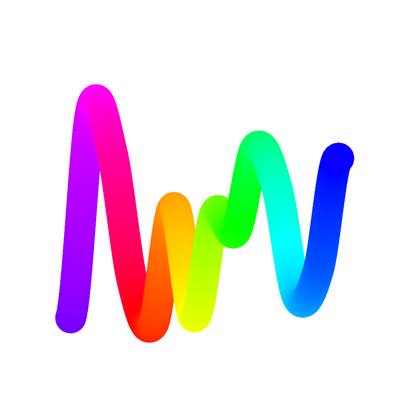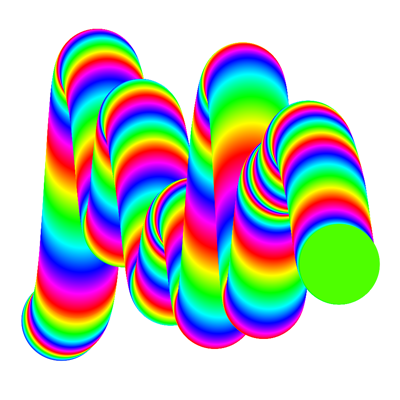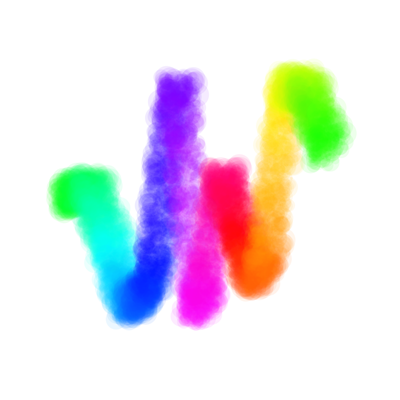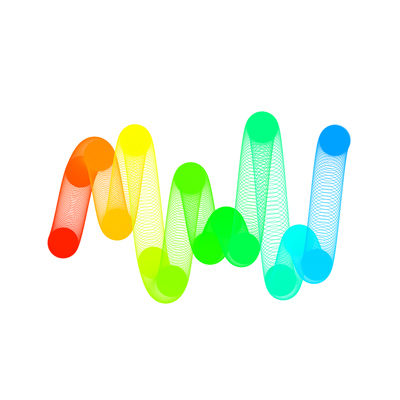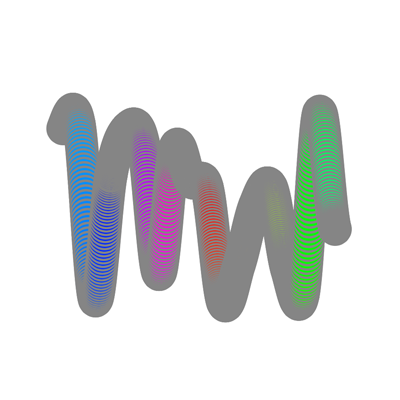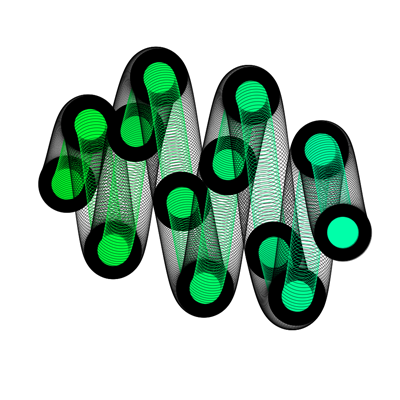Chromie Squiggles were created by Erick Calderon (Snowfro), who, aside from seeming like a really good guy and a very chill dude is the founder of ArtBlocks.io, the unquestioned king in the generative art space of NFTs. To go further, likely the biggest brand name in NFTs period. Chromie Squiggles was ArtBlocks' genesis project and presented free to mint with token #0 being minted on November 27th at 11:13 am. With it, the Art Blocks brand had its logo.
"Simple and easily identifiable, each Squiggle embodies the soul of the Art Blocks platform. Consider each my personal signature as an artist, developer, and tinkerer." -Snowfro
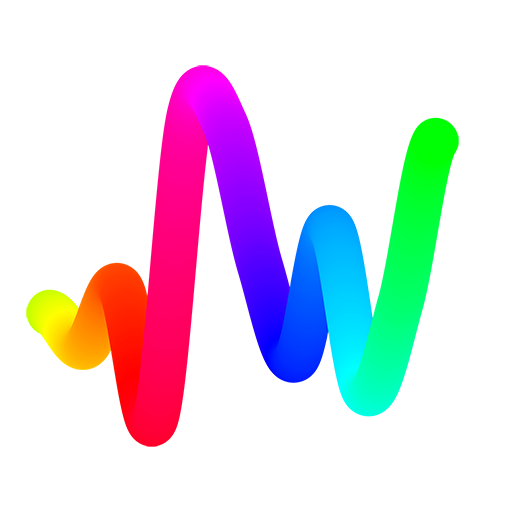
What's So Cool About A Squiggle?
Chromie Squiggles exist entirely on the blockchain. They aren't a pointer to a file on IPFS. It's an actual script built into the smart contract that executes the moment the mint transaction goes through. The script takes a seed input, in the form of a hash string...which is a long hexadecimal string or "hash string" generated on the blockchain in a pseudo-random manner when the token is minted. This seed is used to control a variety of different variables in each Squiggle. Each character in this string (0-9, a-f) represents a value from 0-15 and each pair of characters ("ab", or "f2") represents a value from 0-255. For example, the y-coordinate of each point in a Squiggle is dictated by the value of a hex pair in the seed. These pairs also control the starting color, rate of change of the gradient, amount of points in each Squiggle, plus some surprise features that make some Squiggles more rare than others. With so many different variables built-in to each Squiggle and such a large number of possible seeds, you could generate new Squiggles all day and never come up with the same Squiggle. However, once a seed has been set for a token, the resulting output will always be identical and repeatable. A verifiably deterministic output. Don't believe me? Try it yourself with the Random Chromie Squiggle Generator. The thing is, the Squiggles that WERE created are the works of art. They are immutable. The script that runs in tandem with the seed to create each minted Squiggle cannot change. It lives on the blockchain forever. They exist, and the others are just what could have been. What didn't happen. That's cool.
The structure provided through code, combined with the random outcomes produced by running that code is the essence of the generative art movement. The built-in rarities paired with the unexpected results produce a collection that, at worst, stands alone as a collection of art to be debated across pieces in the collection and at best can produce pieces within the collection that are in and of themselves considered fine art aside from the underlying technology that actually created them. Fidenzas come to mind for the latter.
With that in mind...
A Deep Dive into The Chromie Squiggle Collection
A Squiggle on its own, in a vacuum, without the historical significance, is debatable as art. It would have a tough time standing up to a Rembrandt. As a collection though, let's not simply dismiss the Squiggles as a first mover in the generative art space . Look through the Squiggles collection long enough, and you develop strong preferences for one over the other. Perhaps it is in that simplicity where great art can be found. Squiggles make us choose, differentiate. We are drawn to certain shapes and patterns. Some gradients, we prefer over others. Certain styles are more soothing at first glance. Some might appear cluttered, unsymmetrical, while others just hit a perfect vibe. Some resemble letters, animals, EKGs. This is where your standard type of Squiggle shines. In the basics.
So are you a traditionalist, preferring only normal Squiggles? Or do you stray to the more non-traditional pipes and slinkys? Allegiances are being formed... Let's delve deeper into the collection and the code that created them.
The first variable that determines the look of a Squiggle is its type (normal, bold, fuzzy, slinky, ribbed, pipe).
The type of Squiggle, combined with the 3 variables (color spread, steps between, segments) that, in unison, control the colors and how they are dispersed across the length of a Squiggle are the heart of each random outcome that generates a Squiggle. We can then use these 3 variables to determine how many color hues are actually shown on each Squiggle. The simple formula is:
(segments x steps between) / color spread
Perfect spectrum Squiggles show each of the 256 hues exactly once. There is actually only one combination of the 3 variables listed above that make a perfect spectrum Squiggle making it the rarest of outcomes. 14 segments, 11 color spread and 200 steps between. (14 x 200) / 11 = 254.55 which rounds to 255. So 255 hues are displayed after the starting color, resulting in exactly 256 hues being displayed across the length of the Squiggle. There are currently only 20 perfect spectrum Squiggles in existence, or 0.22% of all Squiggles.
Although not quite as rare, Full Spectrum Squiggles are another highly sought after trait for collectors. For a Squiggle to be considered a full spectrum, the number of hues displayed must come within 1% of perfect. There are only 2 combinations of color spread, segments and steps between that will create a full spectrum Squiggle. 19 segments, 200 steps between and 15 color spread and 18 segments x 200 steps between and 14 color spread. There are currently only 40 full spectrum Squiggles in existence or 0.43% of all Squiggles.
At the literal other end of the spectrum we have the HyperRainbows. These are your Squiggles with an extremely small color spread of .5. Relative to a perfect spectrum Squiggle, the colors per step are 22:1. Wow! That's a lot of color. There are currently only 122 HyperRainbow Squiggles in existence (1.32%) of all Squiggles.
But that's not all! Squiggles have a vast array of collections and rarities to explore. Checkout these collections of rare Squiggles for more interesting outcomes.
Chromie Squiggles as an Investment
There is no doubt about it, Chromie Squiggles are a blue chip investment in the NFT space. The logo project, created by the founder of the most recognizable brand in generative art. I like my chances with that recipe. Additionally, unlike all other Art Blocks projects, there are over 9,000 tokens in the entire Squiggle collection. This gives us something very valuable when trading NFTs. Liquidity. There are buyers. Daily. Check out the Squiggle sales stats for the last 90 days. Chromie Squiggles are almost always found in the top 3 of volume traded across all Art Blocks projects.
The meme culture is strong with the Squiggles. Memes matter. Derivatives by popular artists and Squiggle DAOs for buying fractional ownership of Squiggles already exist. Additionally, the Squiggles are the ultimate, "You paid how much for that?" NFT. All of these things serve to keep the Squiggles in the public eye which is so key to building anything of value.
Did you know
There are still 756 Squiggles still not minted. They are being held by Snowfro to give out as he pleases.
5,675 out of 9,244 Chromie Squiggles have never been sold.
Squiggles are animated and you can change the speed of the animation and the background color. Try it!
